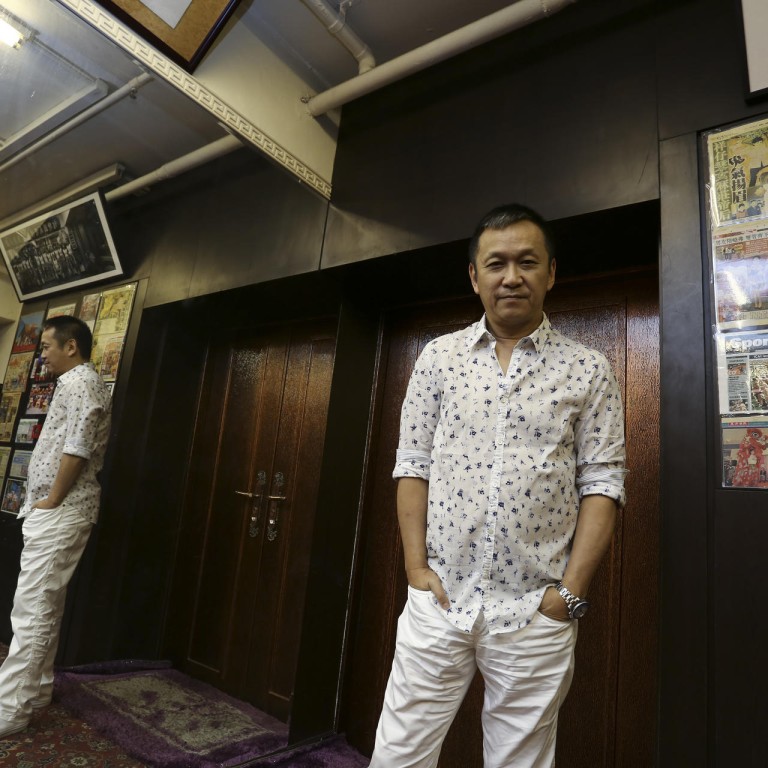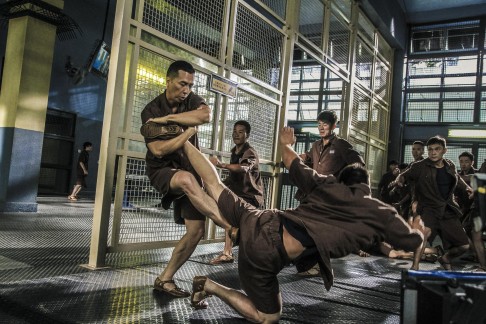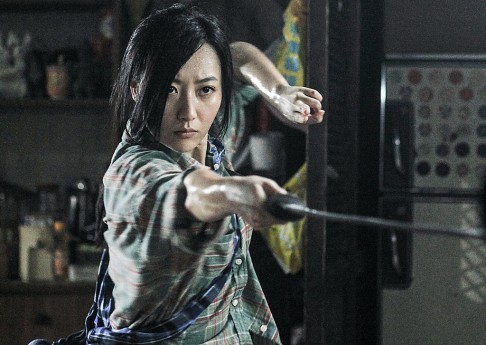
Director Teddy Chen reaffirms his love of martial arts in his latest offering
Of the more than 20 students in a judo class in a Hong Kong public housing estate in the mid-1970s, few were more stunned than the young Teddy Chen Tak-sum to witness their teacher's public humiliation.
Of the more than 20 students in a judo class in a Hong Kong public housing estate in the mid-1970s, few were more stunned than the young Teddy Chen Tak-sum to witness their teacher's public humiliation. It shocked the 12-year-old that a formidable judo master would back down to a few hooligans over a trivial dispute about girls, while being slapped in the face with machetes.
"We all thought he's a master and had no reason to let that happen. We urged him to fight back but he just knelt down and apologised," recalls the veteran filmmaker, who, before that moment, had believed his own athletic gift to be a way out of his miserable childhood.
Raised in a broken family, Chen was used to taking refuge in the heroic fantasies he found in Shaw Brothers films and judo-themed Japanese TV dramas. Nominally a Form 5 graduate, he readily acknowledges that his "real education level is only about Form 2 or 3", and that he only was promoted because of his excellence in physical education.
Sitting inside Luk Chee Fu Martial Arts Federation in Chai Wan, Chen can't resist the opportunity to check out the weapons.
Given the tortuous decade-long production time for his previous film, (2009), it must be a relief that we can chat about his follow-up effort after only five years.


had its world premiere at the London Film Festival earlier this month and will open generally in Hong Kong and several other Asian territories this week. A ferocious action spectacle in the thinly veiled guise of a detective procedural, it follows a police inspector (Charlie Young Choi-nei) as she restlessly pursues a psychopathic serial killer (Wang Baoqiang) with the assistance of a former kung fu instructor (Donnie Yen Ji-dan), who was imprisoned for accidentally killing his opponent in a duel.
Chen had planned to write that early episode about his judo instructor into the traumatic back story of Wang's killer-on-the loose character, but decided subsequently that a genuine martial arts fanatic needs no such motivation to become the best fighter. The awkward overlap between the romanticised ideals of martial arts and the practical reality of the world has, however, been retained.
"This is my experiment to inject the spirit of the martial arts world into an action movie set in a world of advanced technologies, where a person can be simply killed by a gunshot," says Chen, who reveals the setting for to be a consequence of his approach to honing his scripts.
"My original intention for the film was to again use the set of , because I loved that set," says Chen of the concrete streetscape in Shanghai. "After all, I'd spent so much time making it happen; it's a waste to make only one movie with it. But I'm too slow in my scriptwriting. In the two years since was released, several dozen early-20th-century-set kung fu films had popped up. Everyone was sick of it by that point."

To transpose his story to a different time, Chen went through his portfolio of partly developed scripts and found a serial killer story treatment that was incorporated into , which was mostly shot in Hong Kong.
"It's like [the 1995 David Fincher movie] but with Chinese elements," he says. "It was going to be made with a co-producer from France, but they were too slow to act and I decided not to wait any longer."
Chen has reasons to be confident about the project - with or without overseas investment. As one of Hong Kong's more established filmmakers, his memorable action offerings include the stylish espionage flick (1997), the outrageous terrorist thriller (1999), and the Jackie Chan vehicle (2001), which opened 22 years after he worked for almost a year as the action star's personal assistant. "Or lackey, if you're being less courteous," he says with a chuckle.
In addition, the director's previous outing, the Peter Chan Ho-sun-produced , received a whopping 18 nominations at the 29th Hong Kong Film Awards - later reduced to 17 due to a technicality in the best new performer category - and took home eight prizes, including a best film win along with a best director nod for Chen.

Known as much for his versatility as for the eventfulness of his career, Chen is no stranger to his own adaptive reserve following the long line of abrupt setbacks to his projects. He saw 9/11 happen a month before he was scheduled to start shooting his Hollywood remake of , while Sars broke out in the Guangzhou village next to where he had just built a monumental set for .
Chen's rare ventures outside action filmmaking have seen him making arguably the best nightlife-themed Hong Kong film (1994's ) in the past two decades, and also managing to entice superstar Andy Lau Tak-wah to take the lead of an ostensibly unprofitable family melodrama (2005's ), which was made in memory of Chen's long-estranged and deceased father.
In a recent development that looks much more likely to be heading for a happy ending, Chen has been dedicating many of his waking hours to raising money and assisting in the establishment of a welfare fund, which will benefit veteran stuntmen who are past their prime, as well as crew members who are injured on the set.
"I hope everyone who has accomplished something, and who has made some money, can help the industry a little bit. I'm only kicking off this thing as a start," he says.

Together with Jackie Chan, Eric Tsang Chi-wai and a host of other leading industry figures, Chen has been part of a concerted effort to restructure the action filmmaking profession. It began with the endeavour to help stuntmen secure insurance policies ("Even the scaffolding business found it easier to get insured than us"), and will be followed by the opening of new training courses for people looking to join the field, and a major action film project.
From the cameos and tribute messages included in - the action of which was alternately choreographed by Donnie Yen, Yuen Bun and Stephen Tung Wai - the director's respect for martial arts cinema looks boundless. "I don't look at one area or one generation - it's all-inclusive," says Chen, who credits his theme of the bond between men to "the help of many, many friends who have allowed me to get to where I am today".
For someone who has seen the worst vulnerability of kung fu as a kid to reaching the top of action filmmaking as a director, how does Chen make sense of it all?
"I don't mean to philosophise," he says of his filmmaking ethos, "I'm a commercial filmmaker who aims to make entertainment movies. I just want to grab your eyeballs for two hours. That's my mission." Chen's lifelong faith in martial arts' capacity to lift the spirit appears stronger than ever.

